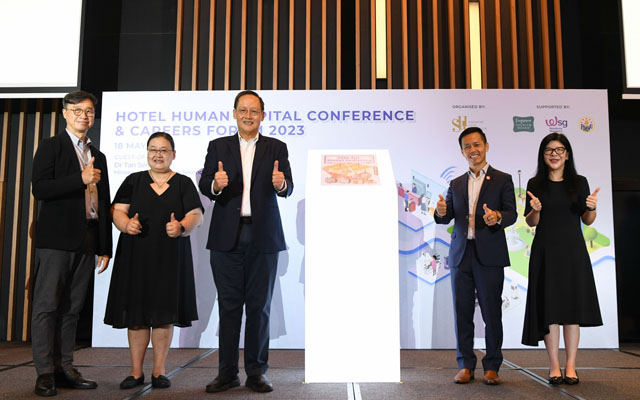Singapore’s public and private sector have teamed up to launch a Jobs Transformation Map (JTM) for the Hotel Industry, as the country’s hotel occupancy and room rates pick up.
The JTM identifies the impact of trends and technology on job roles over the next three years and recommends strategies that businesses can adopt to transform jobs. It will guide employers and employees on the skills and talent needed to remain competitive, innovative and sustainable for the industry to seize new opportunities with a future-ready workforce.

At the JTM launch at Parkroyal on Beach Road on May 18, minister for manpower and second minister for trade and industry, Tan See Leng, said: “To sustain growth and meet consumer demand, the hotel industry must press on with efforts to transform and build capabilities. The government will continue to give our support.”
Four megatrends that would seriously impact the nature of hotel jobs were also identified in the map. It includes changing guest expectations as lifestyles evolve, sustainability, an increasingly competitive landscape, and changing workforce aspirations. It assessed 87 current job roles, of which 40 are likely to be redesigned.
Existing jobs can be reconfigured by “stacking” – merging job roles and equipping jobholders with new skillsets, like an sales and events associate; or merging roles within the same function, such as a reservations specialist. Jobs can also be combined horizontally across different functions, so that employees can focus on value-added tasks.
Looking at the “Hotel of Tomorrow”, the JTM advises hotels to hire talents in sustainability, create roles for technophiles who are data-driven and innovative, and offer new roles that create meaningful experiences in partnership with the community.
Altogether, 135 hotels with more than 18,000 local workers have committed to transform their jobs in line with the JTM. For instance, Pan Pacific Hotel Group will redesign roles, implement initiatives to reimagine hotel operations, and address manpower challenges.
The JTM was jointly developed by Singapore Tourism Board and Workforce Singapore, and supported by SkillsFuture Singapore, the Ministry of Manpower, Singapore Hotel Association and the Food, Drinks and Allied Workers Union, in consultation with 105 hotels and eight education institutions.




















